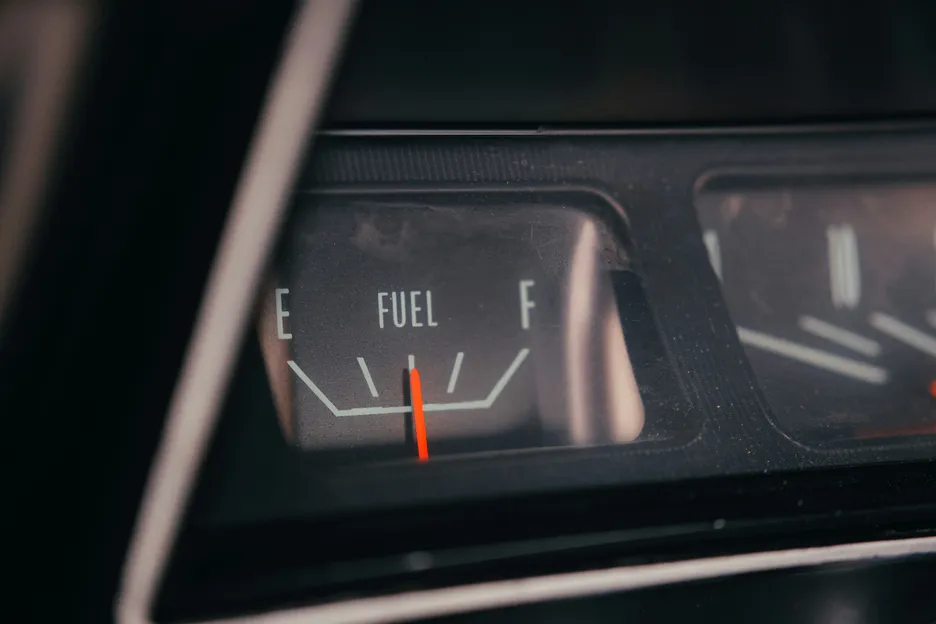Nick is a cash game player, content creator and part of 888poker’s Stream Team. Each week he shares his thoughts and experiences as a player dedicated to the daily grind. This week he reflects on the need to keep your ‘poker tank’ topped up, even if that means stepping away for a while…
Whether you play poker professionally or as a hobby on the side, this game can take up a significant amount of your time. There are other disciplines that are comparable in regard to the energy they require, but poker is uniquely tough in many aspects. I spoke last week about downswings and how taxing they can be for any player, but perhaps trying to see them as an opportunity for growth (easier said than done).
It’s effectively a game that never stops - either when it comes to playing or studying. There’s always a game to play in, whether that’s online or in a live environment, and when it comes to study it’s impossible to be fully versed in the intricacies of the world of solvers; no matter how many hours you spend studying, there’s always another node to peruse. If you allow it, poker can easily take up a lot of your hours.
And that’s not even considering the financial risk that poker relies upon. Battling for meaningful amounts of money doesn’t just take a toll on your free time, but also on your mental fortitude. That’s what makes poker more draining than other hobbies and games, such as chess.
Yes you can spend a long time studying your last chess match, and even longer playing game after game. But at the end of the day, if you lose, it’s only your ego that can be bruised and not your bank balance. In poker, there’s really no limit to the potential pain.
Given this unique combination of stresses, opportunities and potential pitfalls, it’s no surprise that burnout is such an ever-present danger in poker, and why so many players dip in and out of the game. So how do you avoid it?
Keep the tank topped up
Over the years I’ve had a lot of great advice pertaining to burnout, and I use an amalgamation of it to manage my workload within the game. I refer to my capacity to play as my ‘poker tank’, and I’ve become a lot better at recognizing when my own tank is empty. Unfortunately, as much as I’d like to, I can’t do everything I want to do in poker.
I’m lucky enough to spend a lot of my time creating poker content, going to live events, and streaming my play. The last thing that I’d want to feel when I’m in the position of having my dream job is to start resenting the game and losing my passion for it. When I started, I wanted to play and study all the time in combination with my responsibilities, but that’s just not realistic. My tank would empty rapidly, and something absolutely had to give.
That’s why I made the decision a while ago to never play a poker hand unless it pertains to content, and to limit my study significantly. I’ll still review hands with friends to keep myself fresh, but my days of laboring over solvers every night are almost certainly over. While some might feel this limits my EV, I’d argue this decision actually helps to preserve my energy levels and passion to play. And without those things, I’m not going to be making any money playing this game - or enjoying myself in the process.
It’s a game - enjoy it
Even though my particular case may be rare, everyone has their own poker tank. Even if all you do is study and play, the most resilient of players can still hit their threshold after a tough stretch of results.
And there’s really not many things worse than playing through burnout and trying to battle against your own instincts. Sometimes you just need a break, or to at least tone down the volume. The mental, physical, and financial implications of doing otherwise can lead many to dread loading up the tables, or give up altogether.
Poker has a lot to offer, so much so that it’s incredibly easy to overburden yourself. The passion you feel for the game can easily lead to taking on too much at once, but we need to be careful not to work that passion to death. My advice would be to make sure you’re enjoying yourself as much as possible, not only because that’s when you’re likely to play your best, but because that will keep the flame of your passion - the reason you probably took up the game in the first place - alive and well. Reflect on the elements of the game that are most important to you, and be realistic with what you can offer.
And try not to let your tank hit empty.
Follow Nick on X, Instagram, Twitch and his YouTube channel.
Images courtesy of 888poker/Gema Cristobal/Wesley Tingey/Unsplash



































